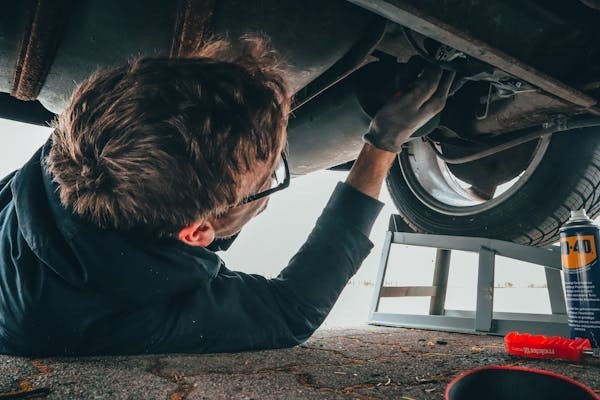views
Stepping into the driver's seat for the first time is an exhilarating milestone that marks a new level of independence and freedom. However, this newfound freedom also comes with a significant amount of responsibility. New drivers often face a steep learning curve as they navigate the complexities of the road, from understanding traffic laws to mastering vehicle control. With motor vehicle accidents being a leading cause of injury and death worldwide, safety should always be the top priority for anyone behind the wheel, especially for those just starting. This article will provide essential safety tips to help new drivers build confidence and stay safe on the road, ensuring that their driving experience is both enjoyable and secure.

Understand and Follow Traffic Laws
One of the fundamental aspects of driving safely is having a thorough understanding of traffic laws. These laws are designed to create an orderly and predictable environment on the roads, reducing the risk of accidents and ensuring the smooth flow of traffic. New drivers should familiarize themselves with the rules of the road, including speed limits, right-of-way protocols, road signs, and signals. Adhering to these laws not only helps prevent accidents but also fosters a more predictable and orderly driving environment. It’s crucial to stay updated on any changes to traffic regulations in your area and to always follow the law, no matter how experienced you become as a driver. Ignorance of traffic laws can lead to dangerous situations and hefty fines, so taking the time to study and understand them is a critical step in becoming a safe driver.
Maintain a Safe Following Distance
Maintaining a safe following distance is critical in preventing rear-end collisions, which are among the most common types of accidents on the road. The general rule is to keep at least a three-second gap between your car and the vehicle in front of you. This distance should be increased in adverse weather conditions, such as rain, fog, or snow, when stopping distances are longer. By giving yourself ample time to react to the actions of the driver ahead, you can significantly reduce the risk of accidents. Tailgating, or following too closely, not only increases the likelihood of a collision but can also create stress and anxiety for both you and the other driver. Learning to judge safe distances and practicing patience on the road are essential skills that every new driver should develop. This habit not only ensures your safety but also contributes to a more relaxed and respectful driving environment.

Minimize Distractions
Distracted driving is one of the leading causes of accidents, particularly among new drivers who may still be developing their driving skills and confidence. Activities such as texting, adjusting the radio, eating, or talking to passengers can divert your attention from the road and significantly increase the risk of an accident. To stay focused, make it a habit to put away your phone, set your music and GPS before you start driving, and avoid multitasking. Instead, you can easily buy dash cams online in Australia: Autobarn can provide you with them and give you peace of mind. Being fully attentive allows you to react more quickly to unexpected situations and helps ensure your safety and that of others on the road. Developing good habits early on, such as pulling over to a safe location if you need to make a call or send a message, can make a big difference in your overall driving safety. Remember, no text or call is worth risking your life or the lives of others.
Practice Defensive Driving
Defensive driving involves being aware of potential hazards and taking proactive steps to avoid them. This includes anticipating the actions of other drivers, staying alert to your surroundings, and being prepared to take evasive action if necessary. For new drivers, practicing defensive driving can enhance situational awareness and improve decision-making skills. Always be on the lookout for erratic behavior from other drivers, such as sudden lane changes, speeding, or aggressive driving, and be ready to adjust your driving accordingly. Defensive driving also means obeying speed limits, using your mirrors frequently, and maintaining a safe following distance. By adopting a defensive mindset, you can stay ahead of potential dangers and navigate the roads more safely. This proactive approach to driving helps build your confidence and ensures a safer driving experience for everyone.

Keep Your Vehicle in Good Condition
Regular vehicle maintenance is essential for safe driving. New drivers should develop a routine for checking their car's vital components, such as the brakes, tires, lights, and fluids. Ensuring that your vehicle is in good working order can prevent breakdowns and reduce the likelihood of mechanical failures on the road. Additionally, keeping your car clean and organized can improve visibility and reduce distractions, further enhancing your safety. Regularly scheduled maintenance, such as oil changes and brake inspections, should not be neglected. Familiarize yourself with your vehicle's manual and follow the recommended maintenance schedule. By taking good care of your car, you not only extend its lifespan but also ensure that it operates safely and efficiently. Being proactive about vehicle maintenance can save you from unexpected repairs and dangerous situations, providing peace of mind every time you get behind the wheel.
Know How to Handle Emergencies
Being prepared for emergencies is a crucial aspect of safe driving. New drivers should familiarize themselves with basic emergency procedures, such as how to change a flat tire, jump-start a battery, and what to do in case of an accident. Having an emergency kit in your car, including items like a first aid kit, flashlight, jumper cables, water, and non-perishable snacks, can be invaluable in unexpected situations. Knowing how to stay calm and take appropriate action during emergencies can make a significant difference in ensuring your safety. Additionally, it's essential to understand the proper steps to take after an accident, such as moving to a safe location, calling emergency services, and exchanging information with other parties involved. Being well-prepared not only helps you handle emergencies more effectively but also reduces the stress and anxiety associated with unexpected situations on the road.
Remember, safety is not just about protecting yourself but also about ensuring the well-being of everyone on the road. Stay vigilant, stay prepared, and drive safely. With these tips in mind, new drivers can enjoy the freedom of the open road while keeping themselves and others safe.























Comments
0 comment